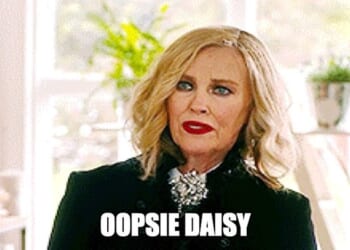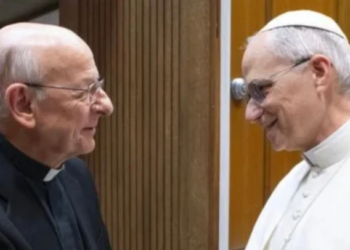Brown University student journalist Alex Shieh is demanding an apology and resignation from a school administrator after a conduct review cleared him of wrongdoing Wednesday.
Sheih, a sophomore at Brown and publisher of the independent “Brown Spectator” student newspaper, sent 3,805 emails to school administrators in March asking them to “describe what tasks [they] performed in the past week.”
Inspired by Elon Musk’s Department of Government Efficiency (DOGE) taking similar actions in February, Shieh sought to directly address the alleged “bloat” that leads to his university’s more than $90,000 annual tuition, he told the Daily Caller.
“I’m fighting for the American dream,” he said. “I want to make education more affordable, because that’s one of the cornerstones of the American dream, particularly Ivy League education.”
When Shieh first sent his emails, Brown pushed back hard.
First, the school sent him a letter notifying him that he allegedly accessed a proprietary system and used confidential data “to produce a publicly available website” — a charge he squarely denies.
“I’m not exactly sure what that’s about. I mean, somebody’s job, their name, their title. This is all public information,” he told a local NBC affiliate in response to accusations he published confidential information.
Shieh said he created the website Bloat@Brown to log the information his investigation uncovered.
The school also said his actions may have violated their policy on “Emotional/Psychological Harm.”
Brown’s Associate Dean and Associate Director of Student Conduct & Community Standards, Kirsten Wolfe, reportedly filed disciplinary charges against each member of The Brown Spectator’s board for using the school’s name in their publication’s title, according to Shieh.
Shieh is listed as The Brown Spectator’s publisher, and he told the Caller that he is on the board of the publication.
UPDATE: @BrownUniversity’s Kirsten Wolfe has launched disciplinary charges against the ENTIRE BOARD of the Brown Spectator as the latest measure in her crusade against independent student journalism.
Kirsten Wolfe says having the word “Brown” in the name of our outlet is a… pic.twitter.com/nCJCYprGMF
— Alex Shieh (@alexkshieh) May 9, 2025
Sheih believes the move was purely a reaction to his emails, saying that the school never took issue with other campus papers that use the name, such as The Brown Daily Herald.
“I think it’s just pure retaliation for bloat at Brown. I think that they were upset that we called them out on their waste, on their bloats, on their DEI, on their antitrust violations,” he told the Caller.
After Brown appointed a professor as a third party arbiter in the disciplinary hearing, the professor ultimately sided with Shieh.
The third party arbiter also sided with each member of The Brown Spectator’s board, who all won their hearings, Shieh said.
Shieh, who called the charges “clearly an attack on free speech,” wants Wolfe to publicly apologize and potentially resign.
“[Wolfe] proclaims in all her communications to everybody to support academic freedom, but it seems like that might only be for people who support Palestine and not for not for people who are questioning Brown’s own administrative bloat. So I think, for that hypocrisy, and also for overseeing this regime of DEI and antitrust violations. I think she should be held accountable. I think that unless she has a very compelling answer for herself, she ought to resign.”
Shieh’s saga drew attention from lawmakers in D.C., like Republican Texas Rep. Troy Nehls.
Nehls, who wrote a letter to Brown urging them to reconsider disciplining Shieh, celebrated Shieh’s win in a Thursday tweet.
“After I sent a letter to Brown University urging them to reconsider any disciplinary actions taken against student Alex Shieh, the university has dismissed all disciplinary charges against him,” Nehls wrote.
🚨GREAT NEWS: After I sent a letter to Brown University urging them to reconsider any disciplinary actions taken against student Alex Shieh, the university has dismissed all disciplinary charges against him.
Congratulations, Alex!https://t.co/HdiqucKU9v
— Congressman Troy E. Nehls (@RepTroyNehls) May 15, 2025
Shieh pointed out that his actions helped shine a spotlight on some of Brown’s financial decisions, including a $300 million loan the school took in April.
That same month, Trump announced his plans to freeze over half a billion dollars in federal grants to the school as part of a review of Brown’s handling of antisemitism and its possible diversity, equity and inclusion (DEI) policies.
Shieh also cited the school’s 2024 agreement to pay $19.5 million to a settlement fund after a federal antitrust lawsuit accused the university of violating antitrust laws. (RELATED: ‘Flagrantly Unlawful Action’: Universities Sue Over Latest Funding Cuts)
“We’re just going to keep on pushing,” he told the Caller.
“I think there have been some layoffs since the federal funding was revoked. They have eliminated some silly programs, but certainly not on the scale to bring down the cost of tuition meaningfully. Now that we’ve brought the issue to congressional attention, particularly with the antitrust investigation, I’m hopeful that we will see continued pressure.”
The attention he’s garnered for the university will likely help his cause.
“Now the entire country knows that Brown is bloated,” he concluded.
The Caller reached out to Wolfe for comment.
Brown’s Vice President for News and Strategic Campus Communications, Brian E. Clark, told the Caller the university could not share information regarding the outcomes of its student conduct process.
“Despite continued public reporting framing this as a free speech issue, it absolutely is not,” Clark told the Caller in a statement.
“Since the initiation of Brown’s review, that review has centered on investigating whether improper use of non-public Brown data or non-public data systems violated law or policy; whether deliberate targeting of individual employees violated law or policy; and whether violations to Brown’s misrepresentation or name use policies took place,” his statement continued.
Clark pointed the Caller to its student conduct procedures.
“Those procedures have guided our actions since this issue originated,” he added. “Students have ample opportunity to provide information and participate directly in that process to ensure that all decisions are made with a complete understanding of circumstances. As Brown’s procedures make abundantly clear, students are not presumed to be responsible for alleged violations unless so found through the appropriate conduct proceedings.”
“Since the start of this matter, Brown has proceeded in complete accordance with free expression guarantees and appropriate procedural safeguards under University policies and applicable law,” Clark concluded.




![‘It’s a Recipe for a Hundred Years of National Dominance’: Stephen Miller [WATCH]](https://www.right2024.com/wp-content/uploads/2025/05/Stephen-Miller-Completely-Obliterates-CNN-Host-Over-Her-Illegal-Immigration-350x250.jpg)

![Trump Posts Hilarious Pope Meme, Leftists Immediately Melt Down [WATCH]](https://www.right2024.com/wp-content/uploads/2025/05/Trump-Posts-Hilarious-Pope-Meme-Leftists-Immediately-Melt-Down-WATCH-350x250.jpg)



![Mother Breaks Silence After Three Daughters Killed During Father’s Custody Visit, Memorial Held [WATCH]](https://www.right2024.com/wp-content/uploads/2025/06/Mother-Breaks-Silence-After-Three-Daughters-Killed-During-Fathers-Custody-350x250.jpg)





